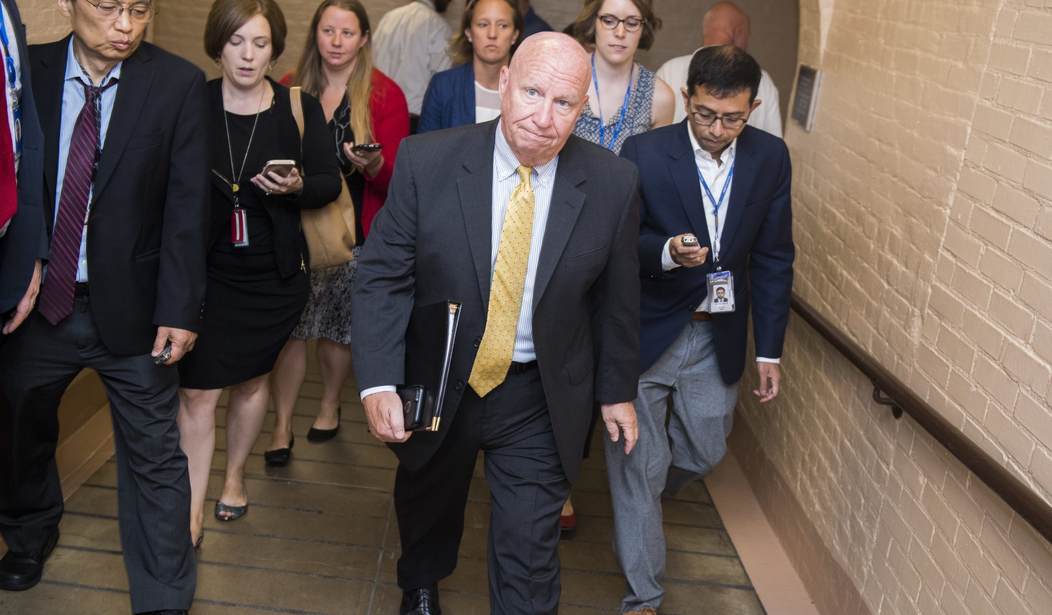One of the strange outgrowths of the feeding frenzy over the Kavanaugh hearings is that there are important news stories lost in the shuffle that, on another day, might have been the lead item on the cable news shows.
This might have been the case with the House voting to make the GOP tax cuts passed last year permanent.
Many provisions of the tax cut legislation were set to expire in 2025 — some even sooner. But by locking in cuts in individual and corporate tax rates, the positive effects those tax cuts have had on the economy will continue.
That is, as long as the Senate votes to extend them as well. And while that won’t happen until at least next year (assuming that Republicans still control the upper body), the promise of permanence allows businesses to continue their expansion.
Rep. Kevin Brady, chairman of the Ways and Means Committee, said, “I think it’s important we make that tax relief permanent for middle-class families and Main Street America.”
The lower tax rates are generally set to expire at the end of 2025 because of budget constraints tied to the process Republicans used to pass last year’s more sweeping tax overhaul. Some other provisions expire even sooner under the new law, which permanently slashed the corporate tax rate to 21 percent from 35 percent.
The fact that the corporate cut was permanent while the cuts for individuals were temporary was a major attack line by Democrats during last year’s debate over the tax overhaul, which passed with zero Democratic support.
The follow-on bill for individual permanence includes cementing a 20-percent deduction on income from non-corporate businesses called pass-throughs. It passed 220-191, largely along party lines.
Three Democrats voted for the House measure — all three in competitive races — while 10 Republicans from high-tax states voted against it. The bill would also make permanent the $10,000 limit on state tax deductions that would raise taxes for some wealthier families. Most of the 10 Republicans voting against the bill were from New York and New Jersey.
The question is what effect — if any — will making the tax cuts permanent have on the midterms? Some Republican members were buoyed by the vote, believing that GOP voters would reward them at the polls. In fact, polls show that while most of the country is shrugging its shoulders at making the tax cuts permanent, Republicans favored it overwhelmingly.
Anything that will boost turnout of your own voters on Election Day has to be seen as a positive.










Join the conversation as a VIP Member